
Symposia at 2024 Midyear!
Below are the past 2024 Midyear Clinical Meeting & Exhibition online and in-person learning activities. Our 2025 learning activities will be posted in September 2025.
Featured ASHP Advantage® Symposia at the 2024 ASHP Midyear!
|
Monday,
Dec. 9
11:30 AM - 1:00 PM CT | 12:30 - 2:00 PM ET |
|
This educational activity will provide an overview of CKM syndrome and evidence supporting early screening and treatment. The latest data from all landmark clinical trials, systematic reviews, and meta-analyses demonstrating the benefit of SGLT2 inhibitors on cardiorenal outcomes and clinical trials currently underway to identify potential emerging areas for SGLT2 inhibitor benefit will be presented. A review of the latest clinical practice guidelines for the use of SGLT2 inhibitors in heart failure, kidney disease, and diabetes will be shared. The activity will conclude with an exploration of interprofessional care models that address barriers and incorporate pharmacists into the initiation, titration, and monitoring of SGLT2 inhibitor therapy for patients who could benefit from treatment. This educational activity will review important foundational principles of parenteral nutrition. A case-based approach that incorporates guidance for appropriate use, preparation and safe administration of short- and long-term parenteral nutrition will be incorporated. Discussion includes compatibility and stability with a focus on lipid injectable emulsions (ILEs), managing drug shortages and transitions of care, and bridging the gap between formal guideline recommendations and the use of parenteral nutrition in daily practice. 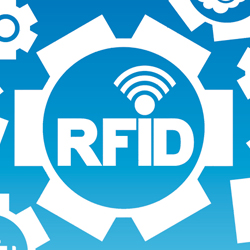 From A to Z of RFID Technology: Unique Uses and the Future of RFID From A to Z of RFID Technology: Unique Uses and the Future of RFIDLive CPEL Recertification Credit Radio frequency identification (RFID) is a wireless technology capable of automatic and unambiguous identification without line of sight by extracting a unique identifier from microelectronic tags affixed to objects. The most common use of RFID technology in healthcare is management of medication trays, crash carts, and intubation trays for emergency departments and operating rooms. However, there are many unique uses of RFID technology which provide process improvement throughout the healthcare system, with demonstrated benefits including improvements in inventory management, patient safety, and workflow. This educational activity will include a panel discussion on current and unique uses of RFID technology, novel opportunities to use RFID outcomes to encourage stakeholder buy-in and discuss future opportunities for RFID in healthcare. |
|
Tuesday,
Dec. 10
11:30 AM - 1:00 PM CT | 12:30 - 2:00 PM ET |
|
This educational activity will examine the evidence for the safety and cost-effectiveness of ready-to-administer (RTA) prefilled syringes compared to the traditional vial-and-syringe method. The data and information for building an institution-specific value proposition to persuade decision makers to adopt or expand use of RTA prefilled syringes will be discussed. Faculty will present implementation strategies for transitioning from vial and syringe to RTA prefilled syringes in different areas of the health system and in non-traditional sites.
Myasthenia gravis is a chronic autoimmune disease where patients suffer from debilitating fatigable muscle weakness requiring lifelong management. Many patients within the first two years of diagnosis will experience a myasthenic crisis, which can lead to respiratory failure, mechanical ventilation, and admission to an intensive care unit. Historically, guideline-based therapies included non-targeted medications for symptom management, corticosteroid use, and steroid-sparring immunosuppression, but there is a lack of robust data supporting these therapies, and adverse events can be a common challenge. Additionally, many patients do not see relief in their symptoms with these therapies. Newer agents including compliment inhibitors and Fc receptor antagonists have paved the way for targeted therapies, which improve disease severity and functional disability. This educational activity will compare different therapeutic options in myasthenia gravis, identify where newer agents fit into individualized treatment, and discuss the important role of the pharmacist in improving patient outcomes.
This educational activity will review appropriate fluid prescribing, assessing efficacy of fluid use, and adverse consequences related to fluid overload. Discussion of opportunities to implement fluid stewardship into practice at the patient level, unit level, and at an institutional and health-system level will also be included. Case-based scenarios will be incorporated to highlight patient-specific fluid prescribing including appropriate monitoring, prescribing, and opportunities to improve patient safety. |

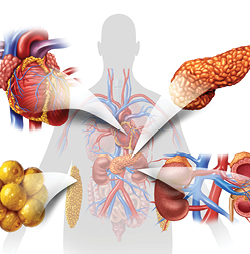 The Whole New World of SGLT-2 Inhibitors: Looking into the Cardio-Kidney-Metabolic Space
The Whole New World of SGLT-2 Inhibitors: Looking into the Cardio-Kidney-Metabolic Space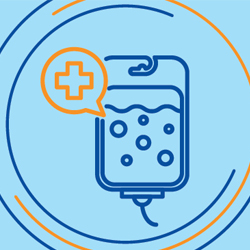 Parenteral Nutrition Quality and Safety:
Tenets for Acute and Long-Term Care Patients
Parenteral Nutrition Quality and Safety:
Tenets for Acute and Long-Term Care Patients
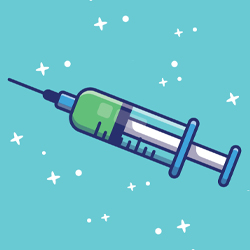 Building and Implementing a Value-Proposition for Ready-to-Administer Products
Building and Implementing a Value-Proposition for Ready-to-Administer Products Supporting Patients with Myasthenia Gravis: A Pharmacist’s Role in Individualizing Therapy and Improving Patient-Centered Outcomes
Supporting Patients with Myasthenia Gravis: A Pharmacist’s Role in Individualizing Therapy and Improving Patient-Centered Outcomes 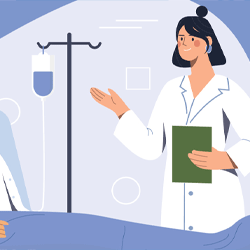 The Solution to IV Fluid Management: Best Practices for Fluid Stewardship
The Solution to IV Fluid Management: Best Practices for Fluid Stewardship
